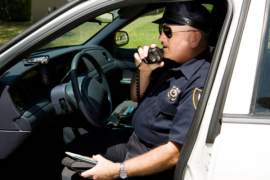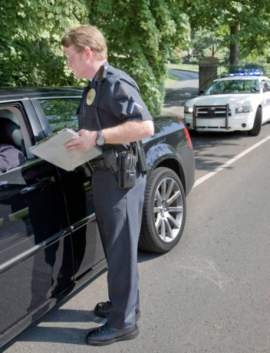
Ignition Interlock Device At A Glance

Background
Ignition interlock devices are small devices installed on the dashboard of a car to prevent the driver from operating the car while intoxicated. The driver must breathe into the device and not register above a certain breath-alcohol content level in order for the vehicle to start. After the vehicle is started, an ignition interlock device may require repeat tests while driving to prevent a friend from starting the car for a drunk driver.
If these fail the driver may receive a warning before the car exhibits signals such as a honking horn or flashing lights to alert law enforcement officers. An ignition interlock device will not turn off an already running device for safety reasons. The installation of an ignition interlock system may be mandated by a judge in a DUI conviction in order to prevent the person from driving drunk again.
Purpose
The purpose of an ignition interlock system is to prevent those convicted of a DUI from driving drunk again. In many cases, those convicted of a DUI will continue to drive and drive drunk even if their license is suspended. Installing ignition interlock systems on the cars of previously convicted DUI offenders, may reduce the amount of drunk driving that occurs. Over 11,000 people are killed very year due to drunk driving in accidents which may have been preventable with measures like ignition interlock systems. Ignition interlock systems can be better methods than license suspension because the individual can still get to work and drive as necessary when sober.
Prevalence and Implementation
Over 45 states have laws which require some mandatory imprisonment after either a DUI where the blood alcohol count was measured above .08, above .15 or a repeat offense. These laws will vary in the required length of the use of the ignition interlock. Only four states do not have ignition interlock system laws and a few leave sentencing up to the judge. States will vary as to the minimum length of sentencing and necessity for an alcohol breath ignition interlock. States have been implementing laws regarding ignition interlock systems since 2004. Washington has the most comprehensive ignition interlock system so far.
Legal Arguments
There are criticisms of ignition interlock systems. Some critics question the effectiveness of ignition interlock systems while others criticize its safety. Many studies have shown that those with alcohol breath ignition interlocks are less likely to be rearrested for a repeat alcohol related traffic violation. The use of an ignition interlock device may reduce rearrest rates by 40 to 90 percent. The retests required may pose a safety hazard and some claim that an individual driving with a BAC of .08 is less dangerous than one trying to give a breath sample while driving.


















